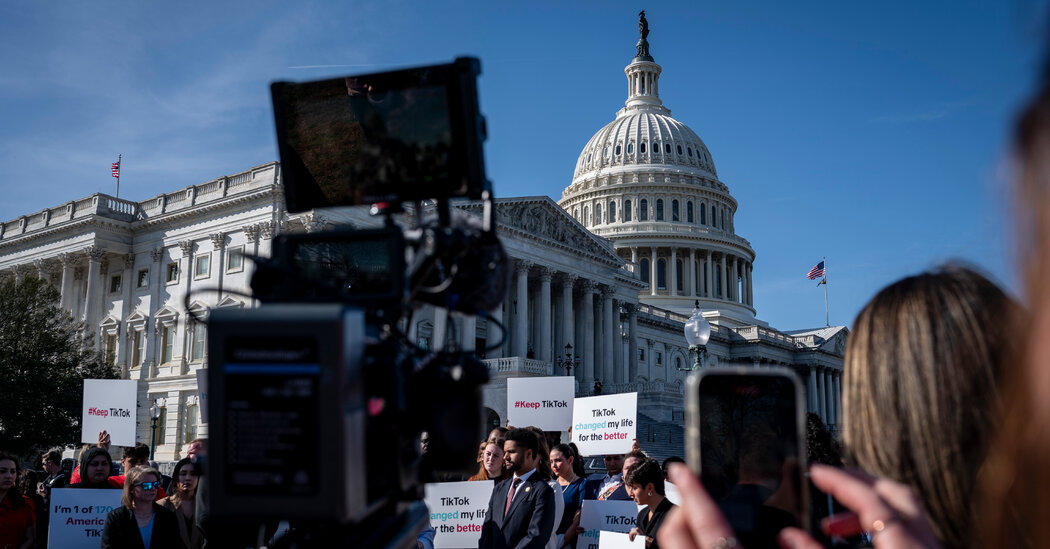TikTok and Government Clash in Last Round of Supreme Court Briefs

The briefs, filed a week before oral arguments, offered sharply differing accounts of China’s influence over the site and the role of the First Amendment.
The two sides in the momentous clash at the Supreme Court over a measure that could shut down TikTok made their closing written arguments on Friday, sharply disputing China’s influence over the site and the role the First Amendment should play in evaluating the law.
Their briefs, filed on an exceptionally abbreviated schedule set last month by the justices, were part of a high-stakes showdown over the government’s insistence that ByteDance, TikTok’s parent company, sell the app’s operations in the United States or shut it down. The Supreme Court, in an effort to resolve the case before the law’s Jan. 19 deadline, will hear arguments at a special session next Friday.
The court’s ruling, which could come this month, will decide the fate of a powerful and pervasive cultural phenomenon that uses a sophisticated algorithm to feed a personalized array of short videos to users. TikTok has become, particularly for younger generations, a leading source of information and entertainment.
“Rarely if ever has the court confronted a free-speech case that matters to so many people,” a brief filed Friday on behalf of a group of TikTok users said. “170 million Americans use TikTok on a regular basis to communicate, entertain themselves, and follow news and current events. If the government prevails here, users in America will lose access to the platform’s billions of videos.”
The briefs made only glancing or indirect references to President-elect Donald J. Trump’s unusual request last week that the Supreme Court temporarily block the law so that he can address the matter once he takes office.
The deadline set by the law for TikTok to be sold or shut down is Jan. 19, the day before Mr. Trump’s inauguration.
